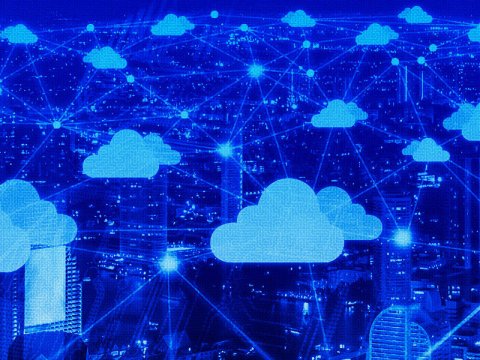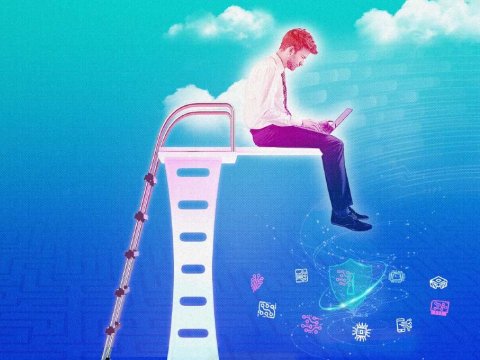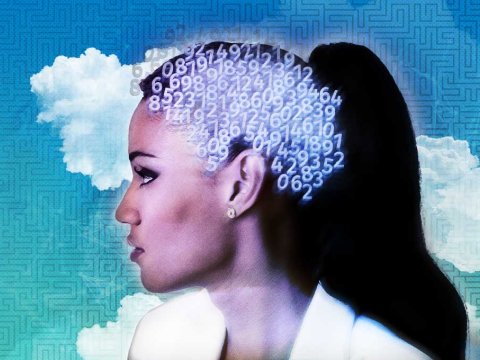The co-evolution of AI and Humanity
Too often, conversations around AI are doomsday-related. But real conversations should include the impacts of AI innovations on what it means to be human.
Will we ever experience a doomsday Terminator-style scenario where artificial intelligence (AI) machines outsmart us humans? It’s unlikely for one primary reason: AI algorithms only do what humans tell them to do — so far. “They are basically just math equations,” stated Miriya Molina, Professional Services Delivery Architect at Rackspace Technology® and host of the AI & U podcast.
So, while we can say with near certainty that AI won’t cause a doomsday scenario, is the opposite scenario possible? Could AI save us from a doomsday incident? “I think it’s more certain that our survival will eventually depend on AI,” explained Dominique Courbin, founder and head of manufacturing and production at Limbitless Solutions. “As humans, we are continually creating more complex problems, and AI is an amazing tool to find the answers that we cannot naturally think our way through.”
While the hypothetical doomsday scenario fear often dominates AI conversations, there are real issues that people aren’t talking much about so far. Topics that deserve deeper exploration include the development of increasingly human-like AI-driven robots, and the ethical use of the AI and machine learning technologies.
On the latest episode of AI & U, Molina discussed the co-evolution of AI and humanity. Her guests included Courbin; Mel Vera, Director of Ecosystem & Education at DoinGud; and Sanaz Abravani, Executive Producer of the documentary Detox.
Tune in to hear about:
- The potential good and bad future impacts of AI and machine learning technologies
- The value of developing AI systems with human-like personalities
- What impact AI technologies may have on our personal freedoms
- The risks associated with losing control of our personal data
- Conversations we need to have about the impact of advanced AI and machine learning technologies
As the development of new AI and machine learning technologies advances, our panel agrees that people need to have conversations around the impacts, both good and bad.
“Sometimes we build tools and don’t even realize what the negative effects might be,” said Vera. “But as we move into Web 3.0, as a society to need to ensure that we understand what we are building and what externalities the technologies will lead to. As creators, owners and participants in the use of these technologies, we need to know what kind of standards we expect and how we’ll use the tools in ways that don’t harm us.”
Staying aware of what is being developed and how it’s impacting our lives through education and conversations will be important as we move forward.
“We are talking about the convergence of nanotechnologies, robotics, genetics and AI,” Abravani added. “We’re being herded into this post-human world by large megalithic companies who are redefining what it means to be human. Right now, the average person is not fully aware of the full scope of where things are going. But we need to be engaged to ensure that the future is developed with a humane focus.”
Another critical issue around merging AI technologies that we need to be aware of is how much freedom we want to retain or concede to the technologies.
“We are already living with an antagonist relationship about losing our freedom of choice and societal structures,” noted Courbin. “In many ways, we only have the illusion of choice, such as choosing between a Caesar and Cobb salad, and not even realizing there are other options. If we’re not careful and not consciously making decisions, we could easily become incapable of making decisions in the future, because the algorithms will be making them for us.”
The upside of the AI revolution is that there is a growing movement toward digital wellness and responsible digital citizenship. “The tide is turning among us humans,” said Abravani. “There is a growing awareness that we want to feel empowered as digital citizens. There are little steps we can each take daily to both enhance our digital experience and make sure it’s not taking over our lives.”
AI & U is a monthly podcast giving you the inside scoop on what’s going on in the industry and what people are doing right now with this amazing technology. We want you to know how AI can help you, whether that be with your business, in your personal life or just for fun.

How to Measure and Reduce Your Cloud Carbon Footprint
About the Authors

Rackspace Technology Staff - Solve
The Solve team is made up of a curator team, an editorial team and various technology experts as contributors. The curator team: Srini Koushik, CTO, Rackspace Technology Jeff DeVerter, Chief Technology Evangelist, Rackspace Technology The editorial team: Gracie LePere, Program Manager Royce Stewart, Chief Designer Simon Andolina, Design Tim Mann, Design Abi Watson, Design Debbie Talley, Production Manager Chris Barlow, Editor Tim Hennessey Jr., Writer Stuart Wade, Writer Karen Taylor, Writer Meagan Fleming, Social Media Specialist Daniel Gibson, Project Manager
Read more about Rackspace Technology Staff - SolveRelated Topics



